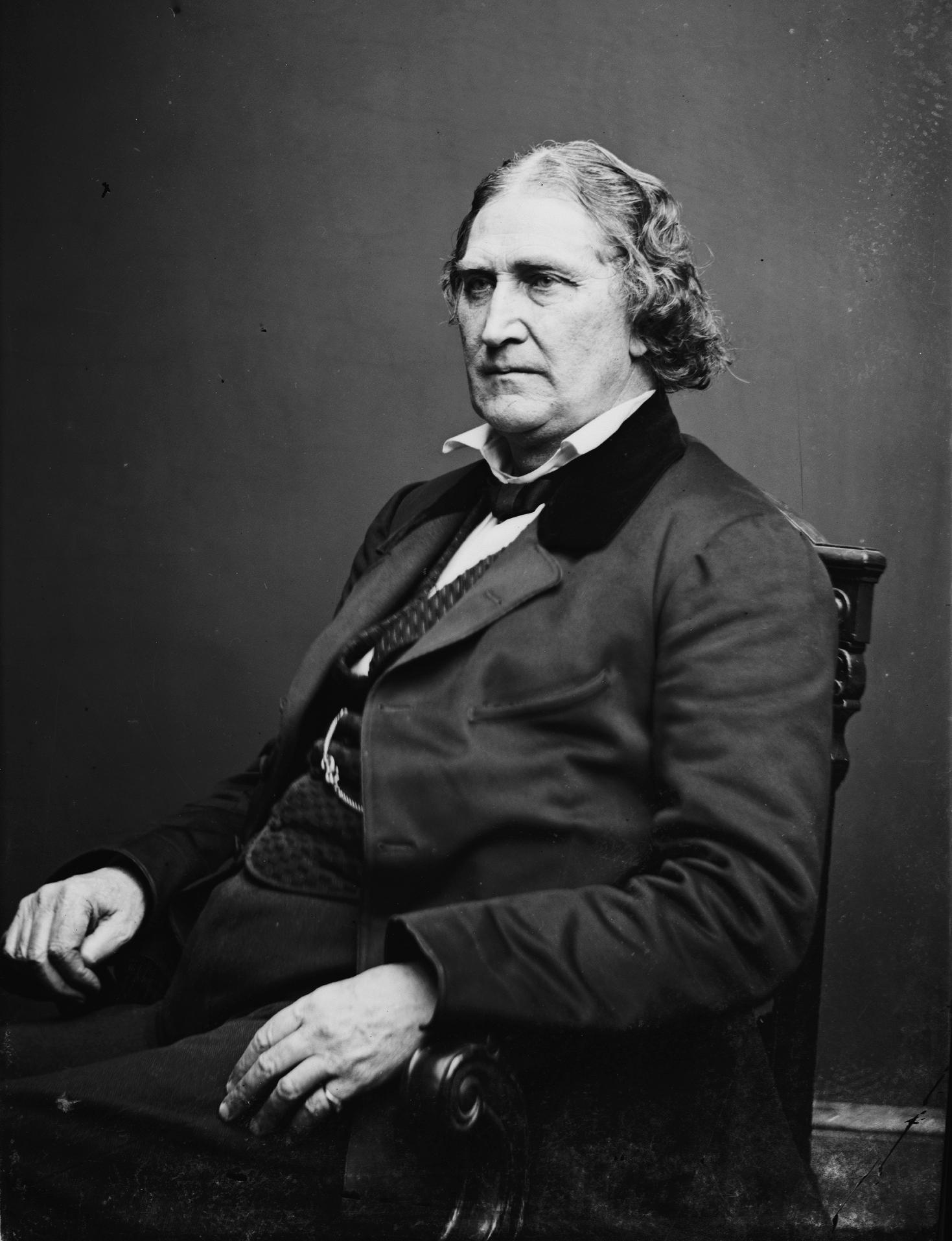- James A. Bayard, Jr.
Infobox Officeholder
honorific-prefix =
name = James A. Bayard,
honorific-suffix = Jr.

imagesize =
small
office = U.S. Senator from Delaware
term_start =April 11 1867
term_end =March 4 1869
predecessor =George Read Riddle
successor =Thomas F. Bayard
term_start2 =March 4 1851
term_end2 =January 29 1864
predecessor2 =John Wales
successor2 =George Read Riddle
birth_date = birth date|1799|11|15|mf=y
birth_place = Wilmington,Delaware
death_date = death date and age|1880|6|13|1799|11|15
death_place = Wilmington,Delaware
spouse =
party = Democratic
residence = Wilmington,Delaware
alma_mater =
occupation =
profession =lawyer
religion = EpiscopalianJames Asheton Bayard, Jr. (
November 15 1799 –June 13 1880 ) was an Americanlawyer andpolitician from Wilmington, in New Castle County,Delaware . He was a member of the Democratic Party, who served as U.S. Senator from Delaware.Early life and family
Bayard was born
November 15 1799 in Wilmington,Delaware , son of James A. Bayard, Sr. and Nancy Bassett Bayard. His father was a member of the Federalist Party, who served as U.S. Representative from Delaware and U.S. Senator from Delaware. His mother was the daughter of another U.S. Senator from DelawareRichard Bassett . His older brother,Richard H. Bayard , was also a U.S. Senator from Delaware.Political career
Bayard studied the law, and began his legal practice in the city of Wilmington. From 1836 until 1843 he served as
United States District Attorney forDelaware and in 1851 was elected by the General Assembly to theUnited States Senate . He was re-elected in 1857 and 1863 and served fromMarch 4 1851 , toJanuary 29 1864 , when he resigned. As U.S. Senator he was chairman of the Committee on Engrossed Bills in the 32nd Congress, a member of the Committee on Public Buildings in the 33rd Congress and 34th Congress, a member of the Committee on Judiciary in the 35th Congress and 36th Congress, and a member of the Committee on Public Buildings and Grounds in the 35th Congress.The Civil War
Bayard was generally a conservative and adhered to his interpretation of tradition throughout the Civil War. He believed that the seceding states should be allowed to go their own way, but did not call for
Delaware to secede from the Union. Citing property rights of owners, he opposedabolitionist measures. He also stated both his opposition to the Civil War and his opposition to the any presidential acts used to suppress the rebellion of the Southern states.During the Civil War, the
United States Senate passed a rule stating that all senators would have to swear an oath of loyalty to the Union. Bayard refused, stating that such an oath would be unconstitutional, and resigned his post in the Senate.When the death of his successor,
George R. Riddle caused a vacancy in theUnited States Senate in 1867, Bayard interrupted his practice of law in Wilmington and served again as the U.S. Senator fromApril 5 1867 , toMarch 4 1869 . During the impeachment trial of PresidentAndrew Johnson , Bayard cast a vote of "not guilty." After declining to again run for reelection, he continued his law practice until his death.Death and legacy
Bayard died
June 13 1880 in Wilmington,Delaware and is buried in the Old Swedes Burial Ground at the Old Swedes (Trinity) Episcopal Church in Wilmington. He was the father of U.S. Senator Thomas F. Bayard, Sr. and grandfather of U.S. SenatorThomas F. Bayard, Jr. .Public offices
Elections are held the first Tuesday after November 1st. The General Assembly chose the U.S. Senators, who took office March 4th, and served for a six year term.
Wikimedia Foundation. 2010.
